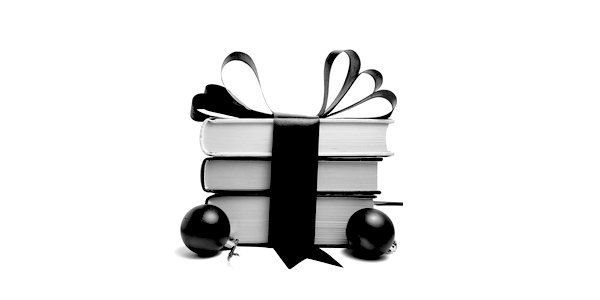Our Enemy, the Government: How Covid Enabled the Expansion and Abuse of State Power by Ramesh Thakur; Brownstone Institute, 2023
‘THE years of living with oppressive Covid restrictions and mandates is a tale of many villains complicit in tyranny and a few heroes of resistance.’
One undoubted hero is the author of these words, Ramesh Thakur, a political scientist, a former senior United Nations official, an Emeritus Australian National University Professor, and most recently a regular contributor for the Spectator Australia and the Brownstone Institute.
He lives in what has turned out to be agitated retirement on the north coast of New South Wales. I am sure his retirement plans did not include experiencing and subsequently chronicling a totalitarian dystopia. But this is precisely what he has been doing, culminating in the publication of a very substantial book.
The first thing to note is its title, Our Enemy the Government, which resonates with Albert Jay Nock’s Our Enemy the State, published in 1935. Nock was an essayist and one of the earliest and most famous leading lights of America’s libertarian movement.
Thakur is a worthy successor, and his book will stand proudly alongside some of the other chronicles of our public health dystopia, including the works of Alex Berenson, Scott Atlas, Naomi Wolf, Robert F Kennedy Jr, Laura Dodsworth, Mattias Desmet, John Stapleton, Sharri Markson, Monica Smit and Gigi Foster (with Paul Frijters and Michael Baker).
There are three reasons why several Australians have produced works on the Covid period. First, outside China, Australia’s Covid regime was just about as bad as it got. Second, the willingness of most Australians to hand over their freedoms without demur was astonishing to many, both at home and overseas. Third, Australia is (with Britain), leading the way in Covid non-inquiries. This has raised the need for those outside the Covid establishment to undertake their own deep analyses of what occurred on the watch of a political class that has, since Daniel Andrews unilaterally declared Covid exceptionalism ‘over’ last year, shamefully looked the other way.
Thakur himself has given us a succinct and elegant overview of both the book and the era:
‘It’s a story of venal, incompetent politicians and brutish police – thugs in uniform – acting at the behest of power-drunk apparatchiks.
‘Medically idiotic, economically ruinous, socially disruptive and embittering, culturally dystopian, politically despotic: what was there to like in the Covid era?
· Billions, if you were Big Pharma.
· Unchecked power, if you were Big State.
· Power over the whole population of a state and fame with extended daily TV appearances on all channels, if you were a chief medical officer.
· More money and power over the world’s governments and people for the WHO.
· Template for action for climate zealots.
· Dreamtime for cops given free rein to indulge their inner bully.
‘But anguished despair, if you were a caring, concerned citizen who loves individual freedom and autonomy.’
The book isn’t only about Australia, by the way. Its lessons are for readers everywhere, certainly across the Western so-called democracies. The seasoned political scientist in Thakur focuses on the ‘virus-thin’ line that separates democracy from dictatorship.
Ramesh was on to the Covid dictatorship very early on. His first article appeared on March 30, 2020. And once he was involved with the beast, he didn’t let go. In the book, he identifies the culprits, the connections, the causes. The culprits range from Neil Ferguson, ‘the Pied Piper of pandemic porn’, to the World Health Organization, whose performance Thakur (generously, perhaps) describes as ‘patchy’. He upbraids the ‘science deniers’ and the ‘self-censoring’ media. He identifies lockdowns as the tools of the elites involved in a class war, and a war of the cities on the countryside. He chides the health regulators for not doing their jobs and of doing the bidding of their funders, Big Pharma, and he takes to task the journalist profession for abandoning ship.
Above all, the book is about executive overreach, the great scourge of our Western polities.
Indeed, all institutional checks on overreach and abuse of executive power – legislatures, the judiciary, human rights machinery, professional associations, trade unions, the Church and the media – turned out to be unfit for purpose.
No one, but no one, roused himself or herself to challenge what was going on. Every last institution to which we might have looked for resistance was caught like a rabbit in the headlights. Or on the take.
What should happen now, on the slow walk back to liberalism? For starters, Thakur would like to see criminal convictions for brutal police and their bureaucratic and political bosses, and the reinstatement of workers sacked for refusing the vaccine. The principle of informed consent must be reinstated.
But will Covid illiberalism be rolled back or has it become a permanent feature of the political landscape in the democratic West? Thakur’s head says to fear the worst, but an eternally optimistic heart still hopes for the best. That doesn’t strike me as all that hopeful.
Those who inflicted the plandemic upon us wish us simply to ‘move on’. The resistance, of which Thakur is a leading light, is working to ensure that doesn’t happen. The future of freedom in Western democracies, not just Australia, depends on the success of the resistance. If no one listens to its leaders and takes heed of their warnings, we will be destined to have the dystopian dose repeated. Often. And worse.

